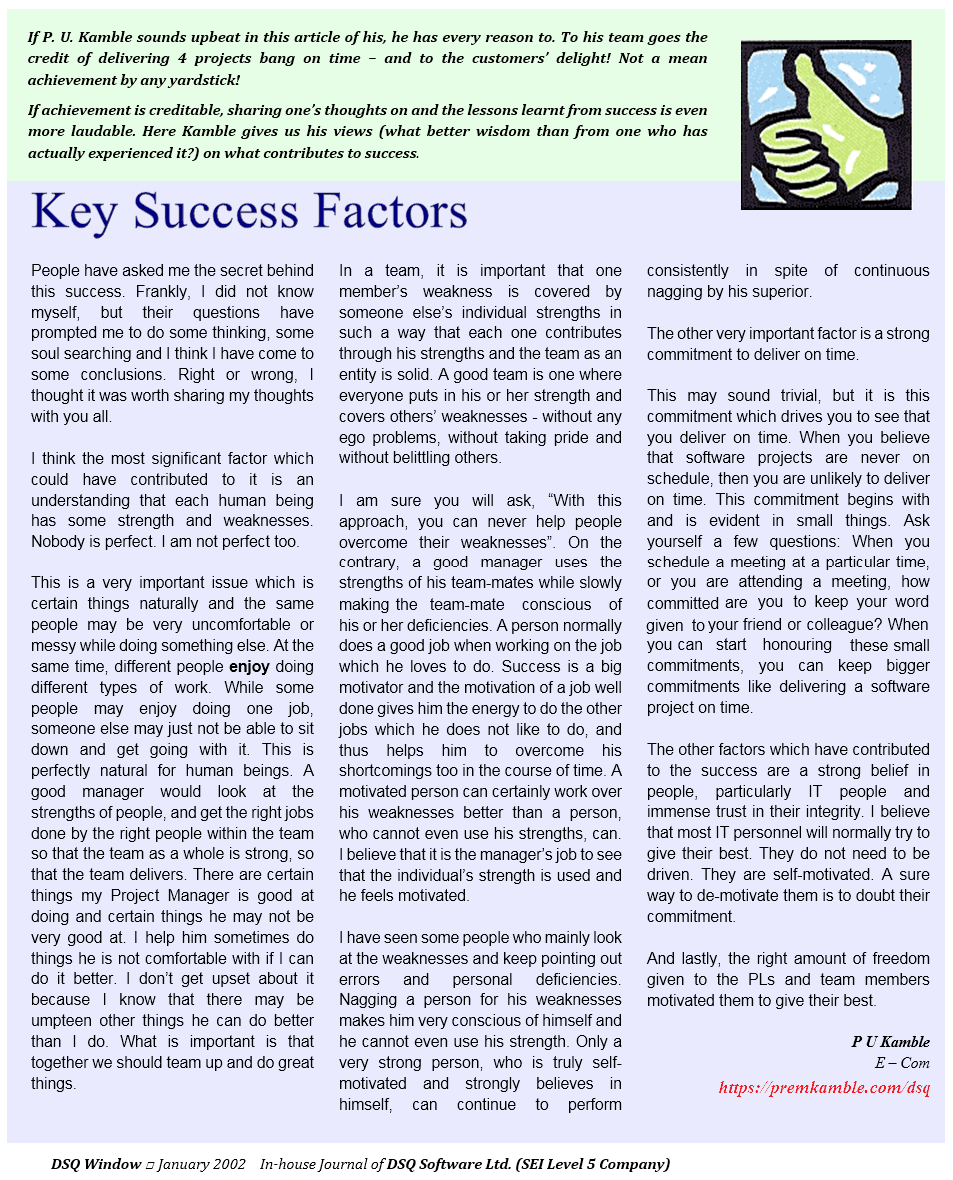My real story how I set a record of delivering all software
projects on time as a Project Director in a SEI CMM
Level 5 company.
Read the full story at
Sulekha Blogs.
This is a summary for the company's in-house journal.

Read the full story titled
"The Management of Mondaq is Shocked to Know That..." at Sulekha Blogs.
Update:
Most of the delays in projects are due to scope creep. Scope creep occurs when
the client is interested in incorporating in the system all the new bright
ideas which crop up after sign-off. The project heads are not able to say "NO"
to the client requests even if they want to. The client rarely knows what
adverse impact it has on the project.
The key to success, in fact one of the most important one according to me, was that
I was able to, if required, say "no" very politely. I could convince my
client that I was saying "no" not because of my whims and fancies or out of
my interest, but in the interest of the client and the project. And mind you,
I still had excellent relations with the clients. I would certainly accept
some demands if they were "show stoppers", and would assure the client that other
bright ideas would not go waste and would be incorporated in the next version.